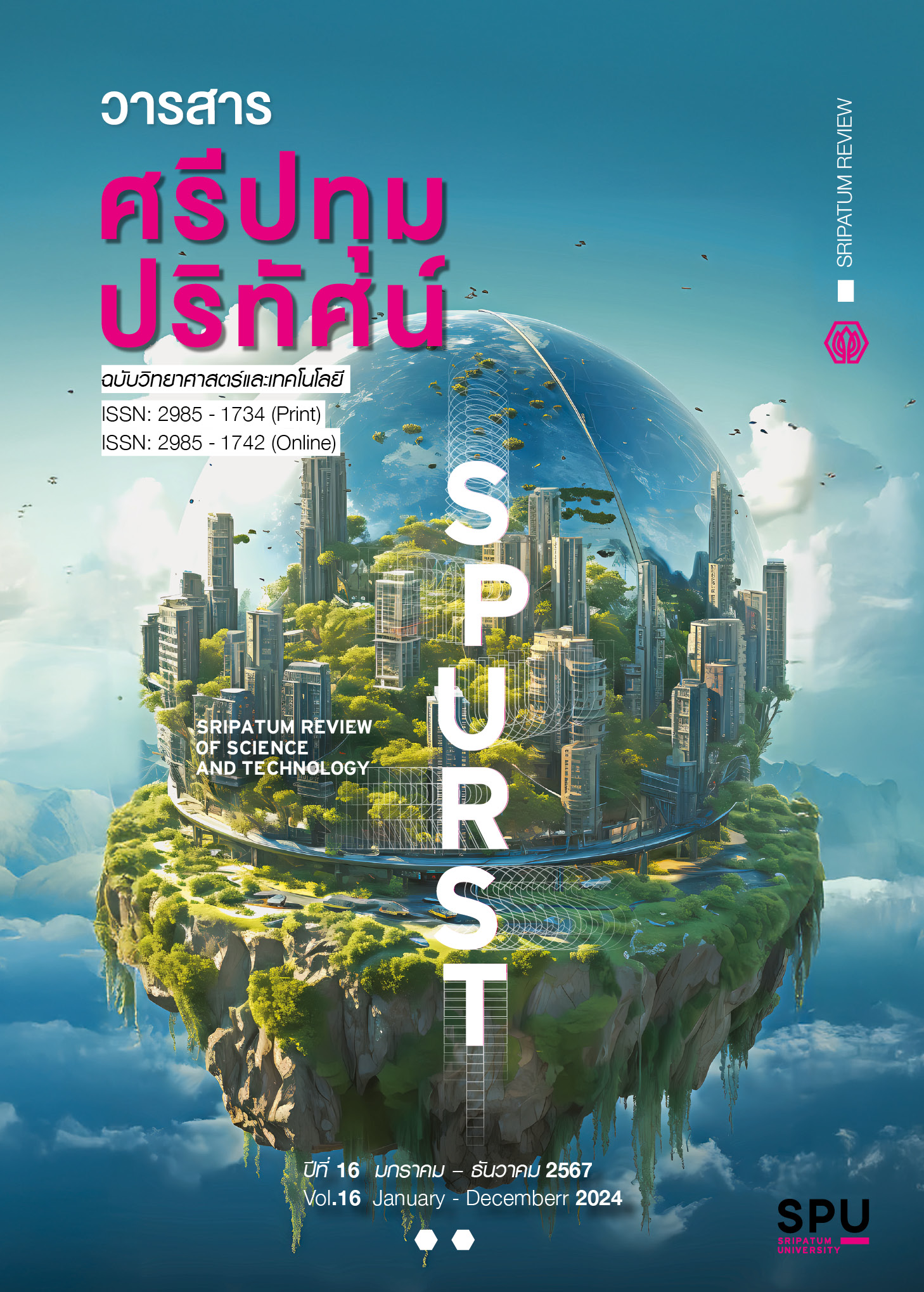Development of Information System for Forecasting the Quality of Curriculum Administration in Business Computer Program, Management Science Faculty, Nakhon Pathom Rajabhat University
Main Article Content
Abstract
The objectives of this research were 1) to analyze factors affecting curriculum administration in Business Computer Program, Management Science Faculty, Nakhon Pathom Rajabhat University, 2) to analyze the structural equation model of the quality of curriculum administration affecting student quality and satisfaction of graduate users, and 3) to propose Information System for forecasting the quality of curriculum administration. The research population was 55 administrators and academic staff at Nakhon Pathom Rajabhat University related to the administration of the business computer curriculum, Faculty of Management Science, Nakhon Pathom Rajabhat University. Data collection was implemented by the researcher. Data were analyzed using Structural Equation Modeling (SEM) using the SmartPLS program. The research findings revealed that (1) factors of the curriculum quality at the higher education level arranged in order of importance from most to least: policies, things to support learning, student, family, teaching workload, teaching media, and teaching methods, respectively, (2) the quality of the curriculum has a direct effect on the quality of the students, the quality of students has a direct effect on the satisfaction of graduate users, and the quality of the curriculum has an indirect effect on the satisfaction of graduate users through student quality, and (3) Information System for forecasting the quality of curriculum administration of the Business Computer Program, Faculty of Management Science, Nakhon Pathom Rajabhat University has 4 main components: 1) curriculum data management, 2) curriculum quality forecasting, 3) display and reporting, and 4) data maintenance and updating. Also, there should be a Dashboard that can report forecast results.
Article Details
References
Ah-Teck, J., & Starr, K. (2013). Principals' perceptions of "quality" in Mauritian schools using the Baldrige framework. Journal of Educational Administration, 51(5), 680-704. https://doi.org/10.1108/JEA-02-2012-0022
Andrian, D. (2019). Developing an instrument to evaluate the influential factors of the success of local curriculum. REID (Research and Evaluation in Education), 5(1), 75-84.
Espinoza, O., & McGinn, N. (2018). Graduates’ satisfaction as a measure of quality: Evidence from two programs in three Chilean universities. International Journal of Educational Research, 90, 133-143.
De Castro Figueiredo, J. F., De Almeida Troncon, L. E., De Lourdes Veronese Rodrigues, M., Lucato Cianflone, A. R., De Fatima Aveiro Colares, M., Cesar Peres, L., & Eli Piccinato, C. (2004). Effect of curriculum reform on graduating student performance. Medical teacher, 26(3), 244-249.
Goodson, C. E., & Miertschin, S. L., & Stewart, B. L. (2011, June), Distance Delivery of Courses: What Components are Important to Students? Paper presented at 2011 ASEE Annual Conference & Exposition, Vancouver, BC. 10.18260/1-2-17787.
Granada, C. O., & Luzano, R. A. (2023). Family Support and Academic Performance of Learners. Family Support and Academic Performance of Learners, 127(1), 14-14. https://doi.org/ 10.47119/ ijrp1001271620235042
Hasan, M., & Hosen, Z. (2022). Influence of university service quality on student satisfaction and loyalty in Bangladesh: With the mediating role of university reputation and external prestige. The Journal of Quality in Education, 12(19), 169-181.
Horia, M., & Adina, R. (2010). Measuring the Quality of a Master's Program Course in Public Administration. Transylvanian review of administrative sciences, 6, 125-143.
Lubis, F. Y., Islaha, S., Witriani, W., Wijayanti, P. A. K., Zariayufa, K., & Pradina, D. O. (2023). Optimization of family functions and parental support in improving student's academic adjustment ability. Abdimas: Jurnal Pengabdian Masyarakat Universitas Merdeka Malang, 8(1), 208-217.
Öncül, G. (2021). Defining the need: digital literacy skills for first-year university students. Journal of Applied Research in Higher Education, 13(4), 925-943.
Secretariat of the Prime Minister. (2020). National Strategy (2018 - 2037). [Online]. Retrieved from: https://www.ratchakitcha.soc.go.th/DATA/PDF/2561/A/082/T_0001.PDF
Silva, A. D., Vautero, J., & Usssene, C. (2021). The influence of family on academic performance of Mozambican university students. International Journal of Educational Development, 87, 102476. https://doi.org/https://doi.org/10.1016/j.ijedudev.2021.102476
Syahmer, V., Nurcahyo, R., Gabriel, D. S., & Kristiningrum, E. (2022). Student satisfaction measurement in higher education. Communications in Humanities and Social Sciences, 2(1), 14-21.
Taseer, N. A., Khan, S. A., Yasir, W., Kishwer, R., & Iqbal, K. (2023). Impact of Family Involvement on Academic Achievement at Higher Secondary Level. Journal of Social Sciences Review, 3(2), 1-10.
Teeroovengadum, V., Nunkoo, R., Gronroos, C., Kamalanabhan, T. J., & Seebaluck, A. K. (2019). Higher education service quality, student satisfaction and loyalty. Qual. Assur. Educ., 27(4), 427-445. https://doi.org/10.1108/qae-01-2019-0003
Verma, S., & Prasad, R. K. (2017). The MEQUAL scale: measure of service quality in management education. International Journal of Comparative Education and Development, 19(4), 193-206.


